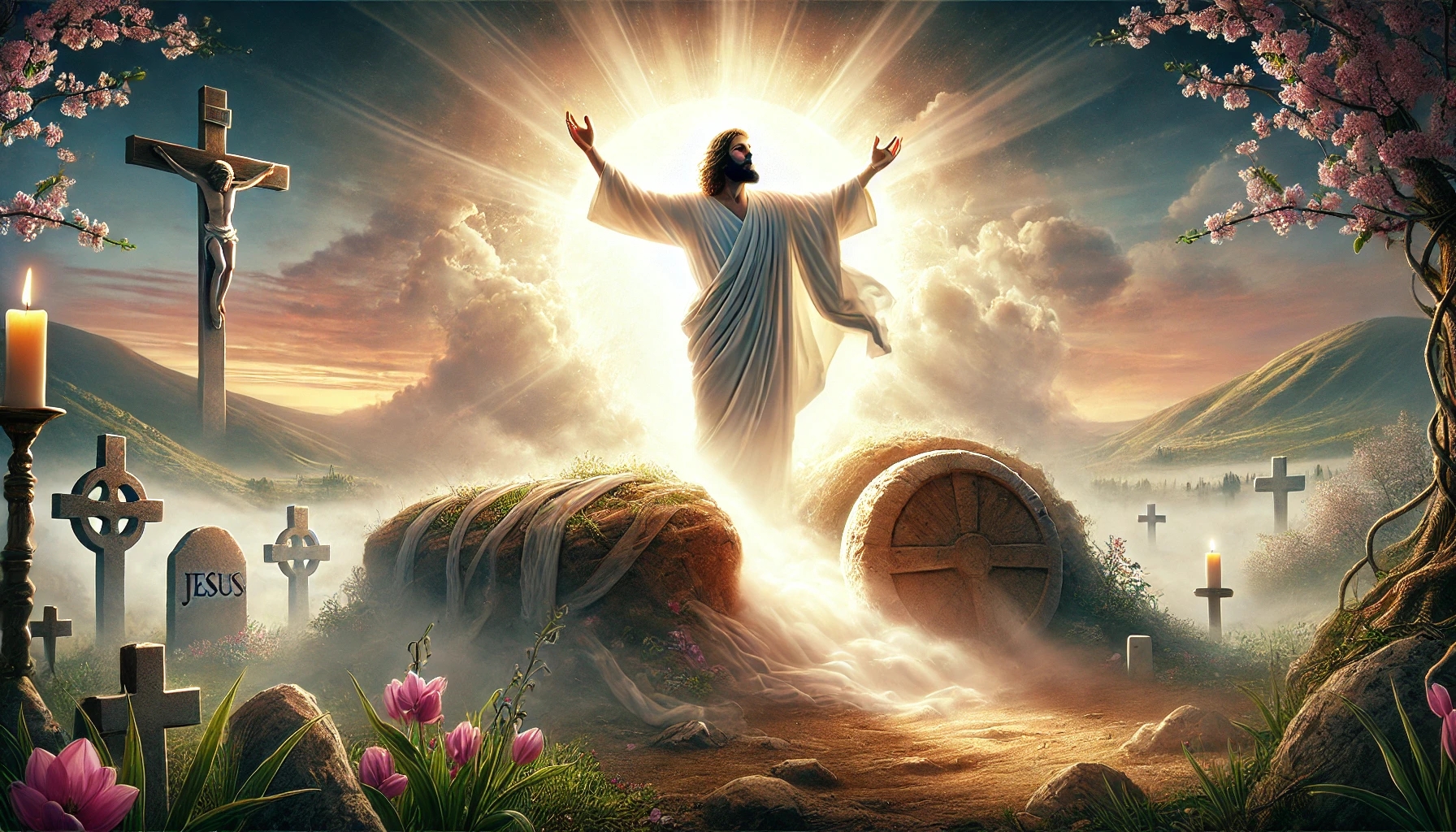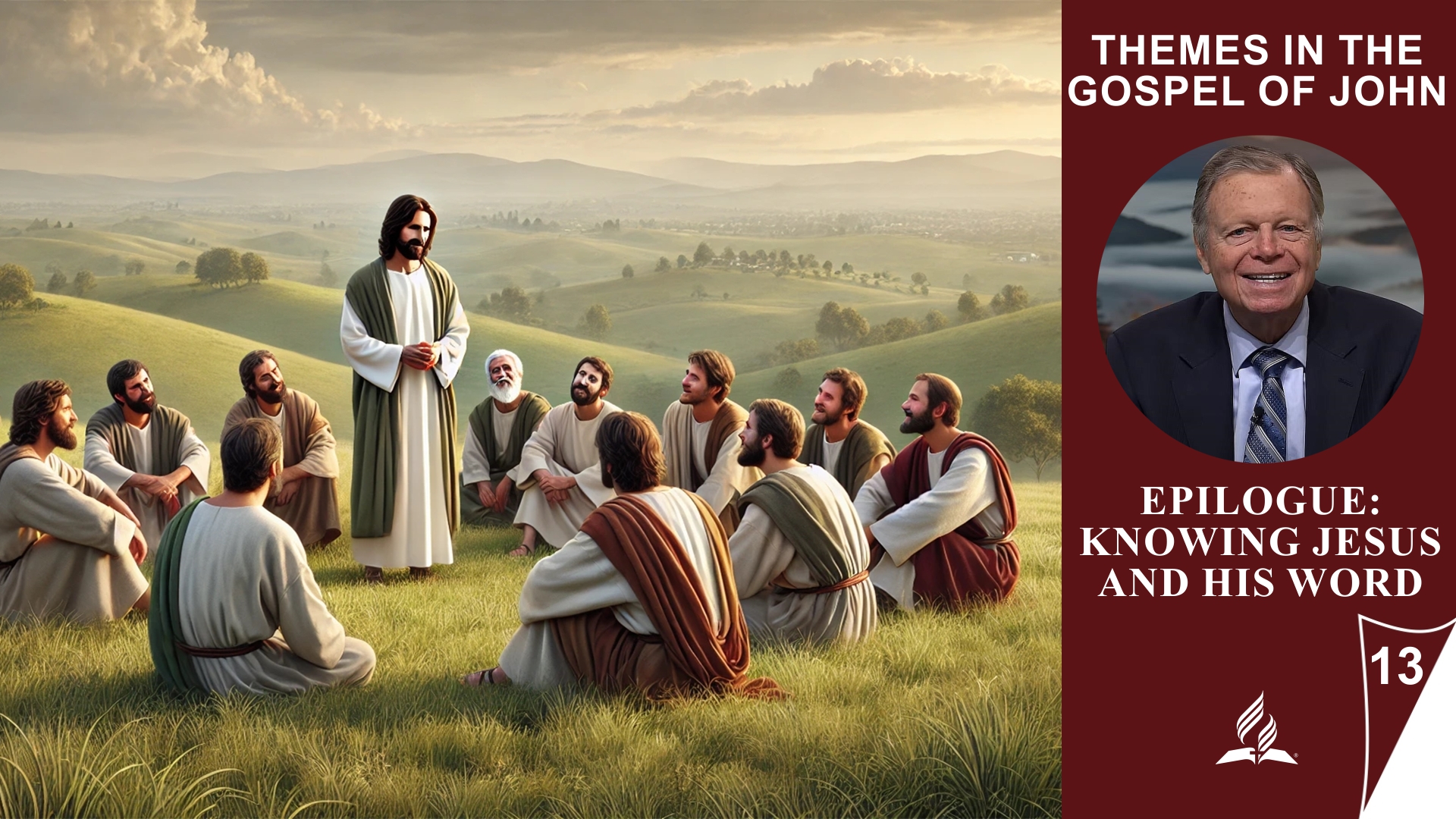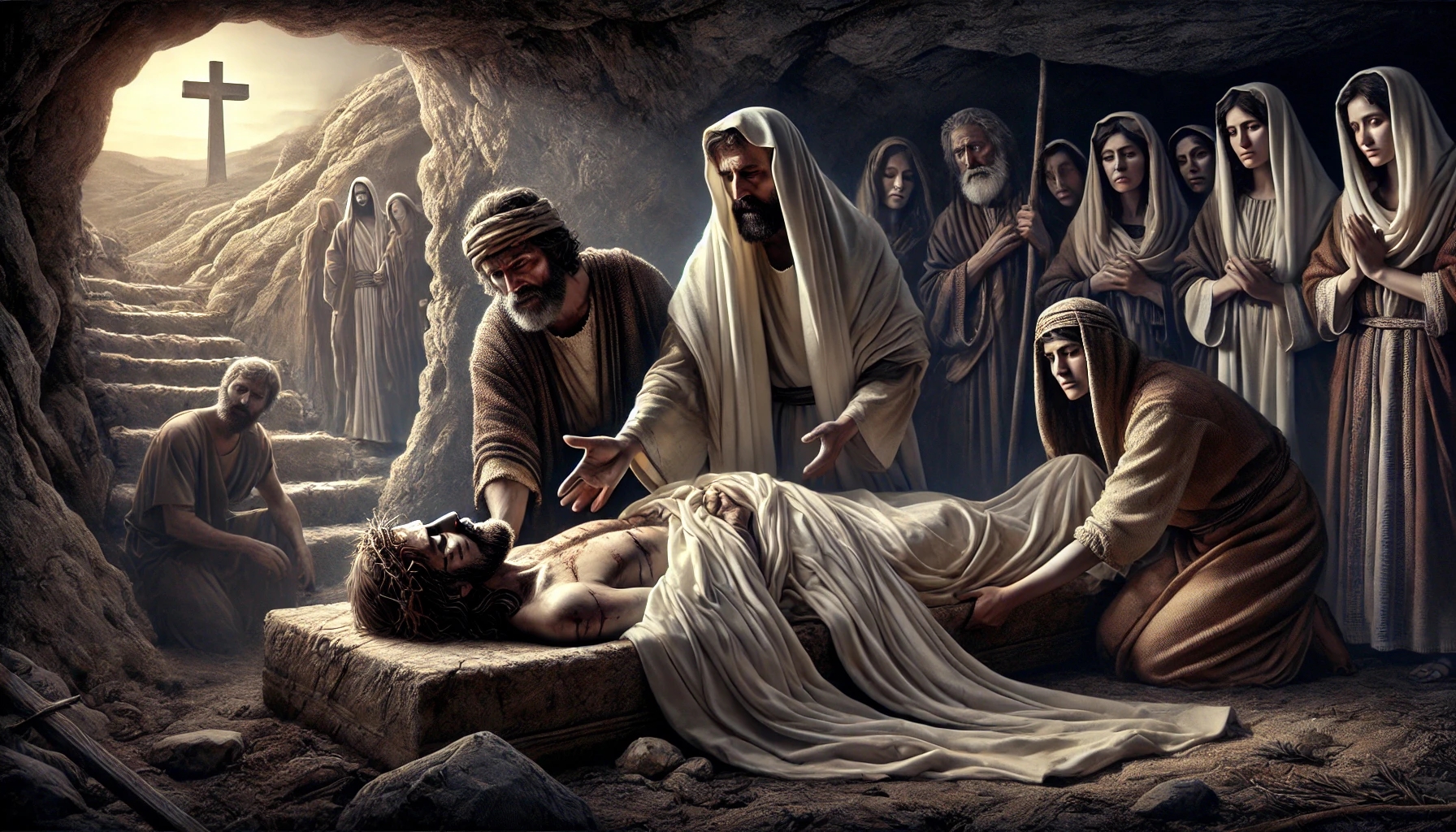December 22, 2024
DAILY BIBLE READING – 1 Corinthians Chapter 12
1 Now concerning spiritual gifts, brethren, I would not have you ignorant.
2 Ye know that ye were Gentiles, carried away unto these dumb idols, even as ye were led.
3 Wherefore I give you to understand, that no man speaking by the Spirit of God calleth Jesus accursed: and that no man can say that Jesus is the Lord, but by the Holy Ghost.
4 Now there are diversities of gifts, but the same Spirit.
5 And there are differences of administrations, but the same Lord.
6 And there are diversities of operations, but it is the same God which worketh all in all.
7 But the manifestation of the Spirit is given to every man to profit withal.
8 For to one is given by the Spirit the word of wisdom; to another the word of knowledge by the same Spirit;
9 To another faith by the same Spirit; to another the gifts of healing by the same Spirit;
10 To another the working of miracles; to another prophecy; to another discerning of spirits; to another divers kinds of tongues; to another the interpretation of tongues:
11 But all these worketh that one and the selfsame Spirit, dividing to every man severally as he will.
12 For as the body is one, and hath many members, and all the members of that one body, being many, are one body: so also is Christ.
13 For by one Spirit are we all baptized into one body, whether we be Jews or Gentiles, whether we be bond or free; and have been all made to drink into one Spirit.
14 For the body is not one member, but many.
15 If the foot shall say, Because I am not the hand, I am not of the body; is it therefore not of the body?
16 And if the ear shall say, Because I am not the eye, I am not of the body; is it therefore not of the body?
17 If the whole body were an eye, where were the hearing? If the whole were hearing, where were the smelling?
18 But now hath God set the members every one of them in the body, as it hath pleased him.
19 And if they were all one member, where were the body?
20 But now are they many members, yet but one body.
21 And the eye cannot say unto the hand, I have no need of thee: nor again the head to the feet, I have no need of you.
22 Nay, much more those members of the body, which seem to be more feeble, are necessary:
23 And those members of the body, which we think to be less honourable, upon these we bestow more abundant honour; and our uncomely parts have more abundant comeliness.
24 For our comely parts have no need: but God hath tempered the body together, having given more abundant honour to that part which lacked.
25 That there should be no schism in the body; but that the members should have the same care one for another.
26 And whether one member suffer, all the members suffer with it; or one member be honoured, all the members rejoice with it.
27 Now ye are the body of Christ, and members in particular.
28 And God hath set some in the church, first apostles, secondarily prophets, thirdly teachers, after that miracles, then gifts of healings, helps, governments, diversities of tongues.
29 Are all apostles? are all prophets? are all teachers? are all workers of miracles?
30 Have all the gifts of healing? do all speak with tongues? do all interpret?
31 But covet earnestly the best gifts: and yet shew I unto you a more excellent way.
King James Version. Public Domain
Commentary
Introduction
1 Corinthians Chapter 12 is a central section about spiritual gifts and their role in the Body of Christ, the church. The Apostle Paul describes the unity and diversity of gifts, offices, and operations, all originating from one Spirit, one Lord, and one God. This chapter illustrates that each Christian has a unique role in serving the church and that all gifts are intended for the common good and the promotion of unity. The metaphor of the body highlights the dependence and cooperation of the individual members.
Commentary
Many Gifts – One Spirit (Verses 1–11):
Paul makes it clear that spiritual gifts come from the Holy Spirit. The variety of gifts (wisdom, knowledge, faith, healing, miracles, prophecy, discernment of spirits, tongues, and their interpretation) serves the well-being of the entire church (v7). The Spirit distributes them to each as He wills (v11). This demonstrates that the gifts are not to be used for self-promotion or division but for the edification of the Body of Christ.
Many Members – One Body (Verses 12–26):
The church is described as the Body of Christ, where each member has a specific function. No member can exist without the others, and all are equal and necessary (v14–20). Paul emphasizes that even the seemingly weaker members should be especially honored to prevent divisions and to care for one another (v22–25). This unity within the body serves as a metaphor for the mutual responsibility and solidarity among believers.
The Body of Christ and the Order of Gifts (Verses 27–31):
Paul reminds the church that they are the Body of Christ and that each individual plays an important role. He mentions various offices and gifts, highlighting apostles, prophets, and teachers as particularly foundational (v28). However, not everyone possesses the same gifts, which underscores the importance of diversity. Finally, Paul urges the church to strive for the best gifts, while anticipating in the next chapter the “more excellent way” of love as the foundation of all gifts.
Summary
1 Corinthians 12 teaches that spiritual gifts and functions originate from God and are all meant to strengthen the church. Paul demonstrates that the unity of believers is not hindered by the diversity of gifts but is instead enhanced by it. Each Christian is an essential part of the Body of Christ and has a unique role. This chapter calls for mutual appreciation, cooperation, and responsibility, while laying the groundwork for the subsequent chapter on love as the highest gift.
![]()

WEEKLY SPIRIT OF PROPHECY READING – Ellen White | The Desire of Ages
Chapter 81—“The Lord Is Risen”
This chapter is based on Matthew 28:2-4, 11-15.
Read online here
Commentary
Introduction
Chapter 81 from the reflection “The Lord is Risen!” is a powerful depiction of the resurrection of Jesus Christ, based on Matthew 28:2-4 and 11-15. This chapter illuminates the triumphant moment when Christ overcame death and the cosmic implications of this event. It highlights the tension between the forces of darkness, who sought to seal the tomb, and the heavenly powers that called the Son of God to resurrection. The message of Jesus’ victory over death and the grave is a source of hope and promise for all believers.
Commentary
The Divine Power of the Resurrection:
The resurrection of Jesus is emphatically portrayed as a work of God. The angel of the Lord, whose appearance struck fear and terror into the Roman soldiers, moves the stone from the tomb and calls out the Son of God. This moment underscores the absolute supremacy of divine power over darkness, both physically and spiritually. The proclamation “I am the resurrection and the life” (John 11:25) emphasizes Jesus’ divinity and His ability to give life.
The Reaction of the Guards and Priests:
The reactions of the Roman guards and Jewish priests demonstrate the magnitude of the resurrection. While the soldiers reverently acknowledge that it was the Son of God they had seen, the priests respond with fear and denial. They attempt to cover up the truth and spread lies about the resurrection. These contrasts illustrate how Christ’s triumph both strengthens believing hearts and shakes the unbelievers.
Significance for Believers:
The resurrection of Christ is not merely an event but a promise. It shows that Christ has power over death and the grave, granting believers immortality and eternal life. The resurrection of the saints who came out of the tombs with Christ is a foretaste of the final resurrection at His second coming. This serves as an encouragement for all who die in Christ, as death is but a sleep for them.
Summary
Chapter 81 is a sublime portrayal of the resurrection of Jesus Christ and its significance. It highlights God’s power that called Christ out of the tomb, the distress of His enemies, and the joy of the believers. The resurrection is described as the central victory over death and darkness, forming the foundation for the hope of eternal life. This chapter reminds us that the resurrection of Jesus is not only a historical event but an ongoing triumph that shapes our future.

WEEKLY SPIRIT OF PROPHECY READING – Ellen White | The Desire of Ages
Chapter 82—“Why Weepest Thou?”
This chapter is based on Matthew 28:1, 5-8; Mark 16:1-8; Luke 24:1-12; John 20:1-18.
Read online here
Commentary
Introduction
Chapter 82: “Why Are You Weeping?” describes the wonderful moment of Jesus’ resurrection and the encounter of the women and disciples with the risen Lord. Based on the Gospels, it is shown how the sorrow and despair of the believers are transformed into joy and hope as they realize that Jesus is alive. This chapter emphasizes the central significance of the resurrection for the Christian faith and invites believers to embrace the hope of eternal life.
Commentary
The Women at the Empty Tomb:
The women who had accompanied Jesus up to His death came with spices to honor His body, unaware that the promise of His resurrection had already been fulfilled. Their deep sorrow was transformed into awe when they saw the angel who proclaimed the good news: “He is risen.” Their spices became unnecessary because the Savior was alive.
Mary Magdalene and Her Encounter with Jesus:
Mary Magdalene, whose grief was particularly great, experienced a personal encounter with the risen Jesus. Her inability to recognize Him immediately reflects the despair that kept her from the reality of His resurrection. However, Jesus’ loving “Mary” opened her eyes. This scene illustrates how Jesus reveals Himself uniquely to each individual.
The Disciples’ Doubts:
The disciples initially reacted with disbelief to the women’s message. Their doubts and fears prevented them from accepting the truth of the resurrection. Nevertheless, Jesus did not reject them but revealed Himself to strengthen their faith and restore their hope. Especially Peter received personal assurance of forgiveness through the mention of his name.
The Message of Hope:
Jesus’ words “Why are you weeping?” and the angels’ exhortation to spread the good news are still relevant today. The resurrection is the foundation of our hope and joy because it demonstrates that death has been overcome. The call to shift our focus from sorrow to the living Christ is an invitation to live in faith and hope.
Summary
Chapter 82 depicts the encounter of the women and disciples with the risen Jesus and highlights the transformative power of the resurrection. It shows how sorrow, doubt, and despair can be transformed into joy, hope, and faith. The central message is clear: Jesus is alive, and through His resurrection, He grants all believers the hope of eternal life. This chapter calls believers to grow in faith and joyfully share the message of Jesus’ victory over death.
Source: https://fulfilleddesire.net/22-11-2024-1-corinthians-chapter-12-believe-his-prophets/






